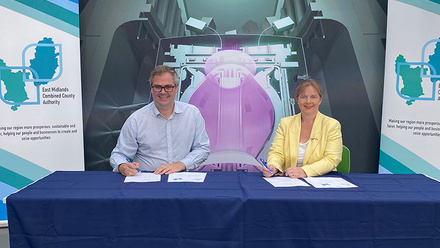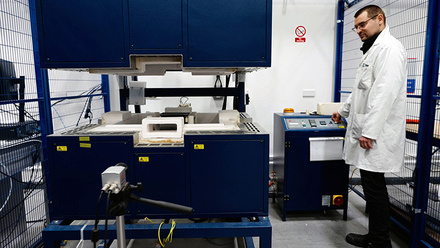IOM3 responds to Spending Review 2025
Chancellor Rachel Reeves today (11 June) presented the Spending Review to Parliament.
On 11 June, Chancellor of the Exchequer Rachel Reeves delivered the Spending Review to Parliament, which sets out department spending allocations for the coming years. The review is separated into two categories: day-to-day spending and investment. Day-to-day expenditure covers administrative costs, such as salaries and supplies, and has been set for the next three financial years, while investment includes capital spending on areas such as infrastructure and project development and has been set for the coming four years.
Some key areas of the Spending Review for IOM3 members include:
Clean energy and climate security
The government outlined its plans for investment in clean energy industries throughout the Spending Review, including £14.2 billion for the development of the Sizewell C nuclear power plant in Suffolk, £2.5 billion to enable a Small Modular Reactor programme, £9.4 billion on Carbon Capture, Utilisation and Storage (CCUS) and £300 million for offshore wind supply chains. The government also committed £4.2 billion over three years to build and maintain flood defences.
Defence
The government has previously announced its ambition to increase defence spending to 2.6% of Gross Domestic Product (GDP) by 2027. Key areas of defence spending over the coming parliament will include £15 billion to develop a sovereign nuclear weapons programme, £6 billion towards munitions, £4 billion towards autonomous systems and £7 billion for military accommodation. Spending will prioritise R&D innovation, and measures to grow the skills base needed are due to be set out in the Defence Industrial Strategy.
Housing and construction
In line with the target to build 1.5 million new homes over the course of this parliament, the government confirmed £3.9 billion for a new 10-year Affordable Homes Programme. The programme is focused on the delivery of social and low-cost housing. In addition, the government outlined funding for the Warm Homes Plan to the tune of £13.2 billion over the Spending Review period, which will be allocated to schemes supporting the rollout of heat pumps, energy efficiency measures and other low-carbon technologies, such as solar and batteries.
Transport
The government has committed £15.6 billion by 2031-2032 to invest in the expansion of public transport in England’s largest city regions and £2.2 billion of funding between 2026-27 and 2029-30 for Transport for London’s capital renewals programme. The Spending Review also highlights the allocation of £2.6 billion capital investment to decarbonise transport from 2026-27 to 2029-30. This includes £1.4 billion to support the continued uptake of electric vehicles and £400 million to support the rollout of charging infrastructure.
Steel
As part of the settlement with the Department of Business and Trade, the Spending Review confirms the government’s commitment to further investment in the steel industry, including a £500 million grant to Tata Steel in Port Talbot. The allocation of additional funding for the sector will be finalised with the release of the steel strategy.
Advanced manufacturing
The Spending Review highlights over £3 billion in R&D and capital funding for advanced manufacturing industries over the next four years. This will include investment in zero-emission vehicles supply chains, batteries and ultra-low and zero-carbon emission aircraft.
Innovation
The Spending Review will see an increase in research and development (R&D) funding to £22.6 billion pounds per annum by the financial year 2029-2030. This will predominantly be allocated to the Department for Science, Innovation and Technology, but also includes R&D expenditure in other departments including Defence, Health and Social Care, Energy Security and Net Zero, and Business and Trade. The government also announced measures on access to finance for businesses to start and scale, including increasing the financial capacity of the British Business Bank to £25.6 billion.
Skills
Finally, the government has committed to an additional investment of £1.2 billion per year in the skills system by 2028-2029. This includes £625 million between 2025-26 and 2028-29 to train up to 60,000 construction workers, and funding for 1.3 million 16-19 year olds to access training programmes.
Responding to the Spending Review, IOM3 CEO Dr Colin Church CEnv FIMMM said, ‘IOM3 welcomes announcements in the Spending Review on planned investment in science and technology, clean energy, defence, construction and transport. In an increasingly risky global landscape, achieving the government’s ambitions across these sectors will depend on the sustainable management of the materials cycle and the transition to a low-carbon, resource-efficient economy.
Commitments to fund decarbonisation in areas such as transportation and housing are crucial in this regard; however, a greater focus is needed on increasing circularity and building domestic capacity in materials, minerals and mining industries. In particular, the Spending Review does not address the UK’s dependence on critical raw materials, nor the targeted investment needed to boost resilience in primary and secondary supply chains. We hope to see funding plans for this area announced in the forthcoming Critical Minerals Strategy.’







